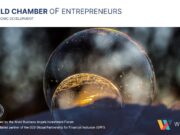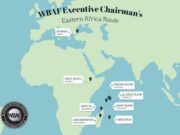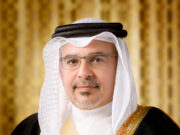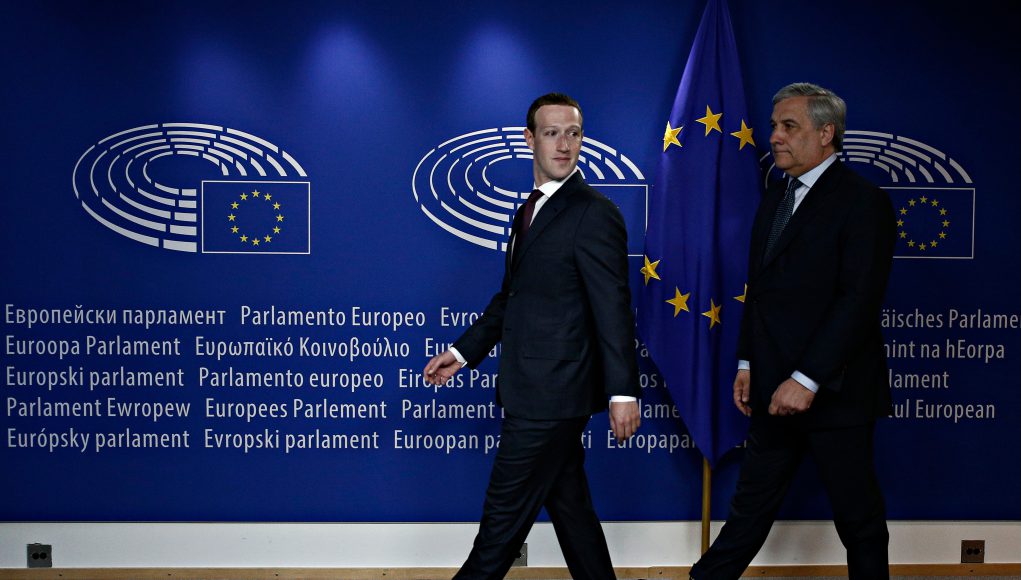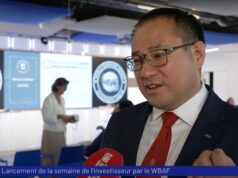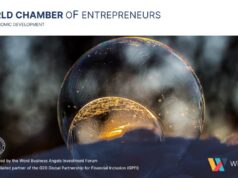An affiliated partner of the G20 Global Partnership for Financial Inclusion (GPFI), the World Business Angels Investment Forum highlights the importance of angel investors in the economic development of G20 countries. For the first time ever, at their July 2017 meeting in Hamburg, G20 leaders recognised in their discussions the importance of angel investment. A new WBAF committee, the Global CEO Alliance Committee, has been set up to focus on the potential of CEOs of international corporates, including those in G20 economies.
Encouraged by the G20 validation, the World Business Angels Investment Forum has taken the initiative to create a global awareness that will support the transitioning of today’s CEOs in G20 economies into qualified angel investors. WBAF believes that G20 countries can do more to foster economic development by involving CEOs more directly in early-stage equity markets.
Baybars Altuntas, Chairman of the WBAF Board of Directors, says, ‘On their retirement, corporate CEOs will have more time to mentor startups, scale-ups, high-growth businesses, and SMEs. They come with a good financial package and a vast network that they have built over the years. The only thing they may lack is know-how: they need to learn about the principles of investing in start-ups and about founding a company from scratch. By the same token, entrepreneurs, SMEs, and founders of startups need support in the form of mentorship, know-know, networking and finance to grow their businesses’.
Dr Paul Doany, CEO of Turk Telekom and Chairman of the WBAF CEO-Preneurship Summit says, ‘The time is now right for the CEOs of today to take a smart step — to focus on the potential of their future role as angel investors. The World Business Angels Investment Forum is taking the initiative, creating an international platform to support the transitioning of today’s CEOs to the qualified angel investors of tomorrow’.
Angel investment is booming worldwide
Angel investor capital funds more than 90% of early-stage investments in Europe. The angel investment market size is more than €9.8 billion in Europe and more than US$26 billion in the U.S. and Canada. The total size of the world’s early-stage investment market is expected to exceed $50 billion by 2020. The $50 billion market for angel investment promises a $150 billion exit in the next 5 to 7 years.
OECD reports show that more than 96% of the world’s economy is driven by SMEs, entrepreneurs and startups. Having understood the importance of the early-stage investment market in the creation of new jobs and social justice, many governments have implemented new regulations that provide tax incentives for angel investors, corporate ventures and start-ups. In the UK and Turkey, for example, tax incentives (up to 75% of start-up investments are tax-deductible) are very supportive.
CEOs of today, the qualified angel investors of tomorrow
Altuntas says, ‘WBAF believes that if we can give CEOs an opportunity to learn the basic principles of angel investing, the world economy will benefit greatly. A CEO-turned-angel investor can contribute to economic development by investing in startups, thus helping create new jobs, social justice and new wealth for economies — even after they retire’.
In this context, WBAF sees filling the know-how gap of CEOs of international corporates as an important social responsibility and invites CEOs to join its global efforts to ease access to finance by engaging early-stage equity markets.
The Global CEO Alliance Committee
The Global CEO Alliance Committee of the World Business Angels Investment Forum will give CEOs a great opportunity to learn about early-stage equity markets and about making small investments in startups as a silent investor and about angel investment principles (carrying out due diligence, making a correct company valuation, preparing term-sheets, negotiating with entrepreneurs, closing deals, mentoring entrepreneurs and making successful exits). They will develop their investment consciousness, behaviour, and skills and will expand their international network. The international network they acquire at the Global CEO Alliance Committee will open global doors for successful exits in the future.
As they develop their investment skills, they will be matched with CEOs in other countries for mentorship while providing, at the same time, mentorship to CEOs in other countries. A monthly 30-minute online chat session with a mentor or mentee will offer a global perspective to members of the Global CEO Alliance Committee.
Here is the agenda of the CEO-Preneurship Summit 2019 at the World Congress of Angel Investors.
Today’s CEOs as Tomorrow’s Qualified Angel Investors: Fostering Economic Development by Involving CEOs in Early-Stage and Post-Early Stage Equity Markets CEO
On their retirement, corporate CEOs will have more time to mentor start-ups, scale-ups, high-growth businesses, and SMEs. They come with a good financial package and a vast network that they have built over the years. The only thing they may lack is know-how: they need to learn about the principles of investing in start-ups and about founding a company from scratch. Now is the time for the CEOs to take a smart step — to contemplate their potential as future angel investors. This panel will focus on ways to support the transitioning of today’s CEOs to qualified angel investors.
Leveraging Corporate Innovation by Engaging with External Ecosystems: Entrepreneurs, Start-Ups, Scale-Ups, High-Growth Businesses, Crowdfunders and Angel Investors CEO
As the market environment changes, corporates have to adapt to new market dynamics to stay ahead of shifts in the market. Opening themselves to external ecosystems can add value to corporate innovation activities. This panel will focus on the question of how corporates can connect with external ecosystems to collaborate with early-stage and post-early stage entrepreneurship markets and to accelerate the innovation process within the corporate.
Entrepreneur-In-Residence Programmes to Cultivate Intrapreneurship: An Option for Accelerating Corporate Innovation from Within
While corporate cooperation with innovative start-ups focuses on making use of the external entrepreneurial potential of new market players, the introduction of an ‘intrapreneurship’ initiative can also foster innovation potential. Some corporates have developed a different kind of intrapreneurship program known as ‘entrepreneurs-in-residence’ (EIR). Based on the concept of venture capital (VC) companies, EIRs develop their own business models – financially backed by a VC or with the support of companies within the VC portfolio. Corporates enable EIRs to develop and/or launch business models within the corporate venture portfolio. This panel will focus on ways to manage both initiatives efficiently and to cooperate with external start-ups for their mutual benefit.
Corporate Innovation Accelerators: A Win-Win Opportunity for Start-Ups and Corporate Ventures
Corporates establish corporate innovation accelerators to support various internal innovation management activities, to implement new business models, and make good use of the entrepreneurial potential of start-ups. The fundamental aim of such an initiative is to provide an interface with the external ecosystem and to cooperate with new market players. In this model, start-ups have access to established corporate infrastructure and are able to have their solutions challenge by experts in the corporate. In this panel, the discussants will share their experiences with their own corporate innovation centres and offer tips on best practices.


